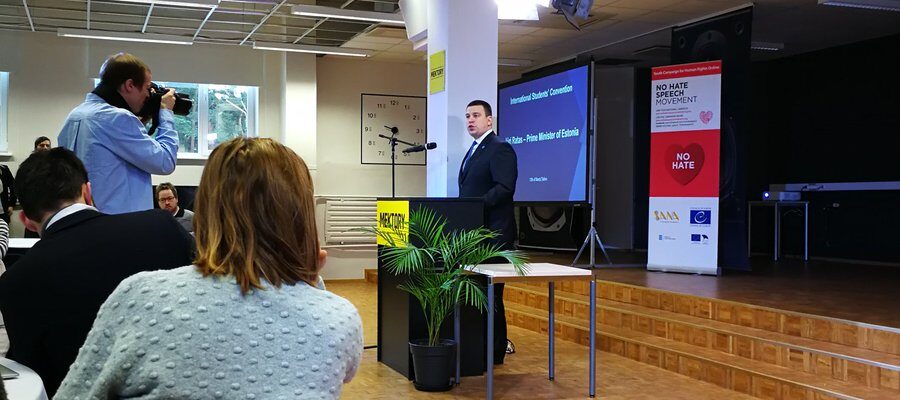
ESC35: Students’ representatives discuss the difficulties faced by International students in Europe
The 35th edition of the European Students’ Convention (ESC) is taking place from 13th to 17th March of 2018 at the Tallinn University of Technology (TUT) Innovation and Business Centre Mektory. Organised by the Association of Estonian Student Unions (Eesti Üliõpilaskondade Liit – EUL) and the European Students Union (ESU), the event gathers over 100 student representatives from local, national and international levels from all over Europe. The convention has been opened by the Prime Minister of the Republic of Estonia, Jüri Ratas.
The conference is centered on the topic “Inclusive Student Movement” and discusses safety and well-being of international students in society and their involvement in the student movement. Every year, more and more students continue their studies abroad, especially in countries offering studies in Higher Education free of tuition fees.
However, international students experience difficulties such as adapting to a new linguistic and cultural context, applying for a residence permit, assuming high tuition fees, finding accommodation and health services, among others.
The aim of the ESC35 is to address the problems of international students, raise their voices and boost their active participation in student movements.
Background
The European Students’ Convention (ESC) is a biannual event organised by ESU where students’ representatives from the national unions of students from 39 different European countries, other stakeholders, experts and policy-makers have the opportunity to meet and discuss about the recent and future developments of higher education.
The Association of Estonian Student Unions (Eesti Üliõpilaskondade Liit – EUL) is an umbrella organization of students representing the educational and socio-economic interests of Estonian students and protecting students’ rights. EUL participate in the development of policies concerning students, making proposals and explanations to the ‘Riigikogu’, the Government of the Republic, ministries, higher education institutions and social partners.
